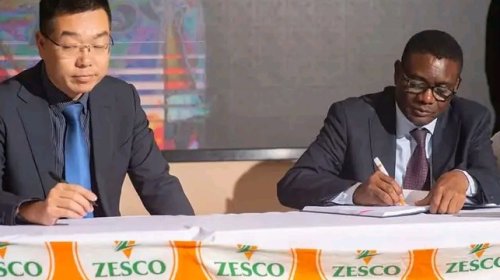Zambian royalty spat halts $2bn of copper mine investment
Copper miners in Zambia have halted $2-billion of planned investments because a royalty tax introduced last year makes the projects unviable, according to an industry lobby group.
A plan by First Quantum Minerals to invest $1-billion extending the life of its Kansanshi operation won’t proceed until the royalty is scrapped, said Sokwani Chilembo, chief executive officer of the Zambia Chamber of Mines. The same goes for EMR Capital-backed Lubambe Copper Mine’s project to invest a similar amount in a new mining operation, he said.
“We need this royalty payment regime removed for progress to begin,” Chilembo said in an interview. “If the government thinking is otherwise, good luck.”
John Gladston, a spokesman for Vancouver-based First Quantum, declined to comment. A spokeswoman for Lubambe didn’t immediately respond to an email seeking comment. Earlier this month, Lubambe CEO Nick Bowen said Zambia’s changing tax regime makes investment difficult.
Zambia’s uneasy relationship with mining investors has deteriorated over the past 12 months, with the government clashing with Glencore over the Switzerland-based company’s plan to mothball Mopani Copper Mines’ operations. Zambia’s increasingly aggressive stance over the nation’s key export industry may partly reflect maneuvering by President Edgar Lungu as he struggles with economic challenges ahead of next year’s elections.
Zambia doesn’t get enough from its mineral resources, but would be willing to consider mining company grievances over the royalty, Finance Minister Bwalya Ng’andu told State television on Sunday.
Zambia, Africa’s No. 2 copper producer, depends on the metal for about 70% of its export revenues. The chamber expects the coronavirus pandemic to cut output this year to about 764 188 tons, far short of Zambia’s target of one-million tons.
The revenue-based royalty increases from a minimum of 5.5% to 7.5% when copper trades at $6 000 to $7 500 a ton, with a further jump to 10% should prices top $9 000. Copper has traded above $6 000 since the end of June.
The royalty represents a double taxation of producers, which also pay corporate income tax, Chilembo said.
“This pushes up the effective tax rate and makes these projects unattractive given the cost of capital,” he said. “As soon as the double taxation element is removed, these projects become viable.”
The chamber wants the royalties to be deductible from profit tax
source: Mining weekly
![]()





